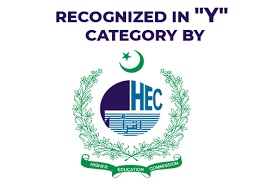Sharīʿah Evaluation of Financial Derivatives and Developing Sharīʿah Compliant Hedging Instruments
Abstract
 Abstract Views: 741
Abstract Views: 741
The use of financial derivatives have been controversial in Islamic Finance. However, the commonly held openion is such derivatives are not Sharīʿah compliant, so should not be used in Islamic Finance. The use of Islamic derivatives in some jurisdiction and not in others on the one hand and the lesser clarity regarding their Sharīʿah basis on the other hand have created uncertainity and thus hindrance for the Islamic financial institutions in properly managing the associated risks. This study is an effort to address the issue and analyze the forwards, futures, options and swaps contracts, from Sharīʿah perspective and to hunt Sharīʿah compliant alternatives to fill this viable gap so that Islamic financial institutions do not find themselves in an unfavorable position. The study adopts qualitative research method to clarify and understand the relevant issues. The analysis shows that, in principle, the current application of derivative instruments in Islamic finance is not Sharīʿah compliant due to a number of forbidden elements. Islamic contracts that can be used as the basis or building block for developing derivatives confirming to the Sharīʿah principles include BaiʿSalam, Murābahah, Wakalah and Wa’ad based arrangements. Based on these Sharīʿah concepts, alternative to Short Selling, FX Forward Contract, Profit Rate Swap and Cross Currency Swap have been examined which will minimize the gape and will help IFIs in development and careful implementation of these structured products as per fundamentals of Islamic Finance, otherwise, it will result a serious breakdown and all the hope of the emerging industry will be lost.
Downloads
Copyright (c) 2020 Muhammad Daraz Khan, Dr. Abdur Rashid

This work is licensed under a Creative Commons Attribution 4.0 International License.
Authors retain copyright and grant the journal right of first publication with the work simultaneously licensed under a Creative Commons Attribution (CC-BY) 4.0 License that allows others to share the work with an acknowledgement of the work’s authorship and initial publication in this journal.












